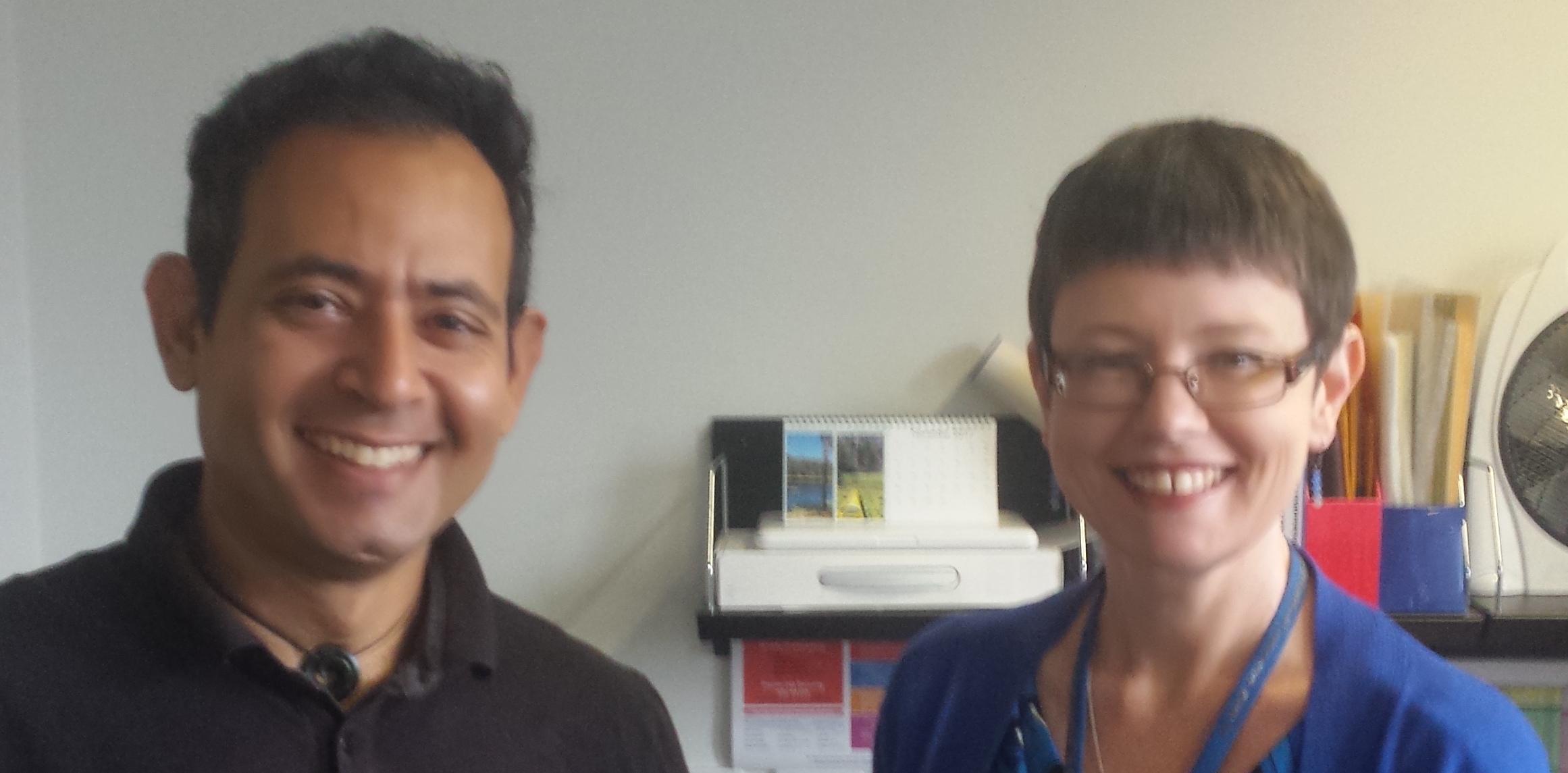
RCC’s Marco Fahmi is working with UQ’s latest Digital Librarian-in-Residence (DLiR), a program he initiated to develop the digital skills of UQ Librarians and set them up as the first port of call for digital research advice for academics and students.
Miranda Newell, UQ’s new DLiR, started her 12-week part-time role on Monday, 30 October,
She is UQ’s fourth DLiR, and will be undertaking the position alongside her usual role of Liaison Librarian for UQ’s School of Psychology and Centre for Integrated Preclinical Drug Development (CIPDD).
During her residency, Miranda will produce a library guide on data visualisation for researchers and students. She will also shadow Marco on his consultations with researchers in UQ’s Faculty of Humanities, Arts and Social Sciences (HASS) in need of digital research support, with the view of leading similar consultations herself in the future at the School of Psychology.
The DLiR program started in late 2016 as a strategy to transfer digital research support knowledge and skills to the university library’s support services. The program seeks not to turn librarians into technical experts as much as recognise their primary role of facilitating access to information, resources and connections to digital research practitioners on campus.
The program was established when Marco noticed the growing interest in the humanities and social sciences in the use of data sets, computer-aided analytics and in interdisciplinary collaboration with technical staff to carry out digital research. Without access to specialist advice and support services, digital research can be daunting and laborious in the eyes of technical novices.
By working directly with faculty liaison librarians and upskilling them on digital methods and tools, the familiar librarian advisory service can become the go-to source for digital research information and support.
“The value of the residency for the library is to gain insight into the specialised requirements of digital research in the humanities and social sciences and to comprehend the diverse needs across schools and disciplines,” said Marco.
“The objective of rotating librarians in the residency is to incrementally develop an ongoing digital research support service and a suite of tailored resources for researchers and research students who possess limited technical knowledge and skill.”
So far, Digital Librarians-in-Residence have completed the following projects:
- An audit of the training and development activities relating to digital research for library staff in order to help researchers. Gaps in training were identified.
- A library guide on digital text mining for those with limited technical skills. The guide was made available as part of the library’s online resources for the research community.
- A library guide on how to use Nvivo for systematic literature reviews.
The DLiR program is part of UQ Library’s review of its digital research service offering and how to adapt to a fast-changing technological environment.
Please contact Marco for more information about the DLiR program or UQ’s Digital Humanities and Social Sciences strategy: marco.fahmi@uq.edu.au.



